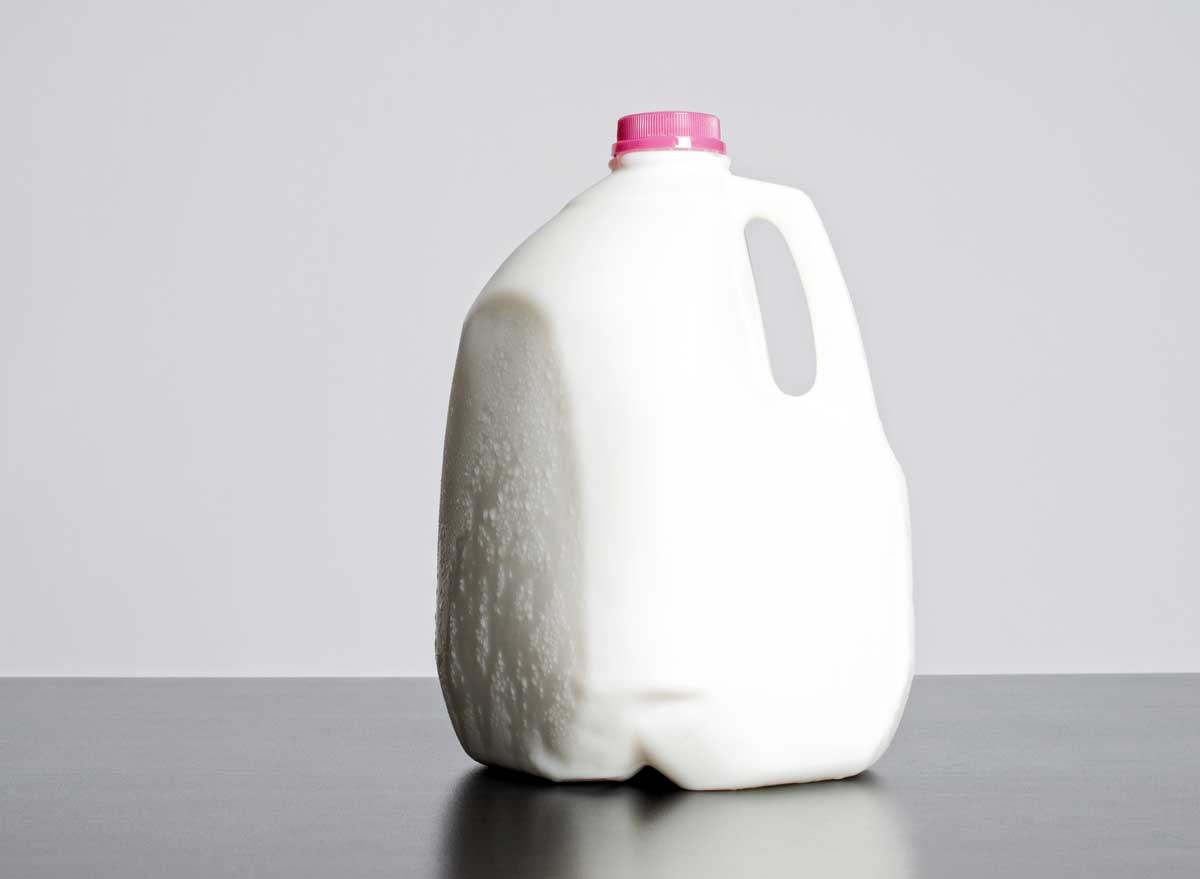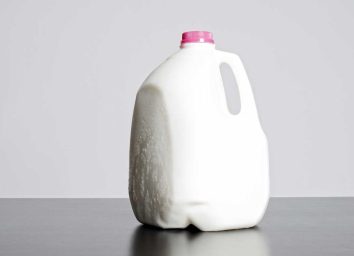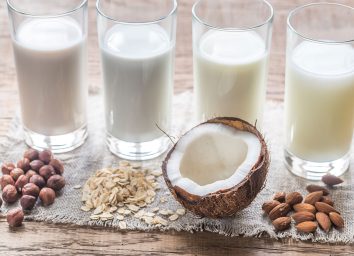Study Debunks Claim That This Popular Food Causes Inflammation

Dairy products are often pegged as inflammatory foods, however, new research suggests that the opposite may actually be true.
According to a recent study published in the Journal of the American College of Nutrition, consuming dairy foods such as milk, cheese, yogurt, and milk proteins (whey) has neutral to beneficial effects on inflammation. The systematic review, which was funded by the National Dairy Council, evaluated the results from 27 randomized control trials that looked at the effect dairy products and milk proteins have on inflammation in the body. (Related: 21 Best Healthy Cooking Hacks of All Time.)
What exactly did this study examine?
Of the 19 studies that analyzed the effect dairy products have on the body, 10 reported no effect on inflammation, and eight reported a reduction in at least one biomarker of inflammation. As for the eight studies that exclusively explored the relationship between the consumption of milk proteins and inflammation, all of them reported no such association.
Still, dairy products are often associated with inflammation primarily because of the saturated fat and lactose (the naturally occurring sugar in milk) contained in these foods. In fact, some 65% of the human population has a reduced ability to digest lactose after infancy.
Have other studies found similar results?
One of the authors of the study, Chris Cifelli, Ph.D., VP of Nutrition Research at National Dairy Council, told Eat This, Not That! that this new study is the third systematic review to be published within the past three years that indicates dairy foods have neutral to beneficial effects on inflammation.
In 2017, a systematic review of 50 clinical trials demonstrated that dairy products were linked to anti-inflammatory activity in participants with metabolic disorders. The dairy products that were analyzed included low- and full-fat varieties as well as fermented ones, such as yogurt and kefir.
Another systematic review published in 2019 that evaluated randomized clinical trials also reported similar results. In fact, the authors of this particular review stated, “the majority of the studies documented a significant anti-inflammatory effect in both healthy and metabolically abnormal subjects.”
How could dairy products have beneficial effects on existing inflammation in the body?
As Cifelli points out, there are nine essential nutrients in milk, including vitamin D, calcium, and potassium—all of which help to maintain bone health. However, the 2015 Dietary Guidelines Advisory Committee identified that the recommended dietary allowances for these three nutrients are often not met by Americans. Additionally, the consumption of dairy foods has been associated with a lower risk of developing conditions such as cardiovascular disease, type 2 diabetes, and metabolic syndrome—all of which are thought to be partially caused by chronic inflammation.
Following an anti-inflammatory diet is key to reducing chronic low-grade inflammation in the body and ultimately lowering the risk of developing chronic disease. “It is believed that one of the leading causes for low-grade inflammation is gut leakiness,” says Cifelli. “Dairy foods can be a positive addition to an anti-inflammatory diet.”
Yogurt is especially believed to promote good gut health. A clinical study published in 2017 demonstrated that eating about 1.5 servings of low-fat yogurt a day was linked to a reduction in chronic inflammation and improved gut integrity.
Of course, if someone has lactose intolerance, staying away from dairy products is strongly advised. “Lactose intolerance is a condition to take seriously and it impacts different people at different degrees,” Cifelli says. “For example, some can tolerate a small amount of lactose while others can’t.”
Luckily, there are lactose-free dairy products including milk, cheese, and even ice cream that people with this dietary restriction can safely eat and still receive the nutrients found in regular milk. (Related: 12 Lactose-Free Yogurts You’ll Love—Especially If You’re Lactose-Intolerant)
What foods are known to cause inflammation?
Eating a diet primarily made of plant-based foods is the key to warding off inflammation. On the other hand, processed foods such as deli meats and packaged snacks with high levels of added sugars and refined grains are the ones that can contribute to chronic low-grade inflammation if eaten regularly and over time.
“Processed foods, with their high sugar levels, omega-6 fatty acids, excess sodium, and junky additives, on the other hand, can stoke the fire of inflammation,” Sydney Greene, MS, RD, told ETNT in an interview about how a plant-based diet can protect you from disease.
“On the flip side, foods like dairy, fruits, and vegetables—especially dark, leafy greens and deep orange vegetables—tend to be anti-inflammatory,” adds Cifelli.
For more, check out The Best Dairy Milk Brands To Buy, According to Nutritionists.








